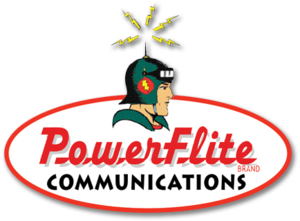Why Do Companies Run Ads If There's No Certainty People Will Buy?
/Why should a company spend money to advertise when there’s no certainty of the outcome? It’s an investment. It’s a bet, but one proven to pay off. It’s the same reason a person wears a nice outfit to a job interview, the same reason you smile at people when introduced to them, and the same reason you tell people about your product if you actually want them to buy that product. There is no certainty that you will get the job. No certainty the person you are meeting will like you (and vice versa). And no certainly people will buy your product. But it has been proven that making a good impression on people and giving them relevant information makes all of those prospects much more likely.
That’s what running ads can do. Good ads, that is. We once created a billboard ad for a health insurance company that yielded 27 calls (that we heard about) by 10 o’clock the first morning it went up. Eight of those calls were from employees who all said, without being asked, that it made them feel better about working for that company. That may not sound like much, but at the time, the company was trying to overcome some very bad news in that marketplace, so having employees feel better about being there – which was not even the point of the ad – was a real win.
The other nineteen calls all went into the sales department for follow-through and more calls came in later. The billboard also caught the attention of local media and both a newspaper and a television station did stories about it. The company was able to overcome its bad news within six months – not just because of that billboard, of course, but we know based on further customer research that it helped. That proved to be a very good investment, despite there being no certainty beforehand about what the outcome would be.
We’ve had similar experiences with radio commercials, TV spots, newspaper ads, and other media. Not long ago, a client asked us to create a B2B direct mail package + email + website landing page campaign that cost them around $150,000 – with zero certainty of making even one sale. But it did exactly the job they needed it to, piquing new interest and getting them in the doors of over 30 high value prospects that had not responded well to past efforts. They closed over $70 million in new contracts that summer, and they started new relationships with prospects who hadn’t known anything about them before.
Again, the ads, direct mail, and emails have to be very good to be effective, which we emphasize because too many companies have told us, “We’ve run ads before and they didn’t work.” Which does not surprise us at all, because there are A LOT of very poorly conceived, poorly executed ads put out into the marketplace every day, and no…bad ads do not work.
Look at it this way: Ads are not just sales tools. They are part of the sales process, but they are much more. They can do a lot to help a brand tell its side of who they are, what they stand for, and what they hope to achieve (or have achieved) for their customers. Ads are an investment just as a nice headquarters is an investment, a good web site is an investment, and hiring smart and talented people is an investment. And just like your people (or the web site or offices), if the ads don’t work out, you change them. But you don’t stop advertising, unless and until you are ready to go out of business.

